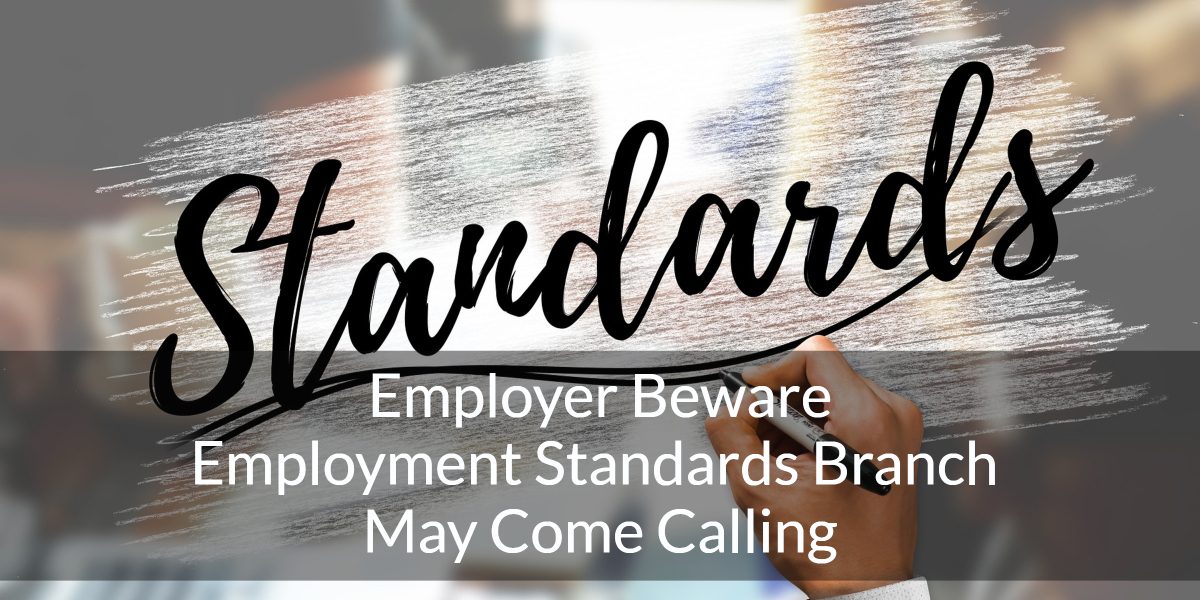Be organized, be accurate and be obsessive, or the Employment Standards Branch (ESB) may come calling
All employers in BC who are not federally regulated, must comply with the requirements of the Employment Standards Act.
Often small or medium sized businesses are unaware of all of the requirements they are subject to and only learn of an unmet obligation when they receive a complaint from a current or former employee demanding payment of unpaid overtime, unpaid vacation days, unpaid commissions and the like.
The Act requires employers to keep records that show each employee’s hours of work. If an employer has told an employee that the employee will not be paid for overtime and the employee should not work any extra hours, as unfair as it may seem in the circumstances, the employer may still have to pay overtime hours claimed by the employee, even long after the employee supposedly worked these hours.
For example, if the employer did not have the employee acknowledge in writing that no overtime would be paid unless it was expressly allowed by the employer in writing, if the employer did not keep records showing the employee’s start and finish times, and breaks, and the employer did not take steps to tell the employee directly to leave at the end of the employee’s shift, or allowed the employee to do the employer’s business off hours (e.g. communications with customers before or after a regular shift), more than likely the employer will have to pay the full amount of overtime claimed, if the employee has his or her own records of the overtime he or she allegedly worked.
It is not uncommon in these kinds of cases that the employee has kept a record of overtime hours while the employer has not.
Most employers expect that if you are scheduled for a 9 to 5 shift, you leave at 5 and that there is no need for additional paperwork to confirm this. In many cases, where the employee is still working for the employer, this is good enough. However, former employees may be more inclined to file a complaint with the ESB and may claim for hundreds or thousands of dollars in overtime, whether true or false.
An employer who considers it has paid everything it owed to the employee will get a nasty shock especially if that shock is likely to affect the employer’s bottom line for the year. It seems harsh but the legislation is designed primarily to protect employees; employees are certainly more vulnerable than employers in most cases but like all systems which are designed with the best of intentions, there are those who will abuse them.
As an employer, if you haven’t kept good records or been attentive to the hours when your employee is at the office or working from home, it is likely you will end up paying for an overtime claim you never authorized. A good employment contract can cover this off. If you do not use employment contracts for your employees, at least make sure they either sign off on your “no overtime policy” or that you keep accurate and complete hours of work records for each employee.
If you have questions about your rights and obligations under the Employment Standards Act, we will do our best to answer them.
RESOURCES
Employment Standards Branch British Columbia
Employment Standards Act Guide
Employment Standards Branch: Employer’s Guide
Employment Standards Branch: Record Keeping Fact Sheet



